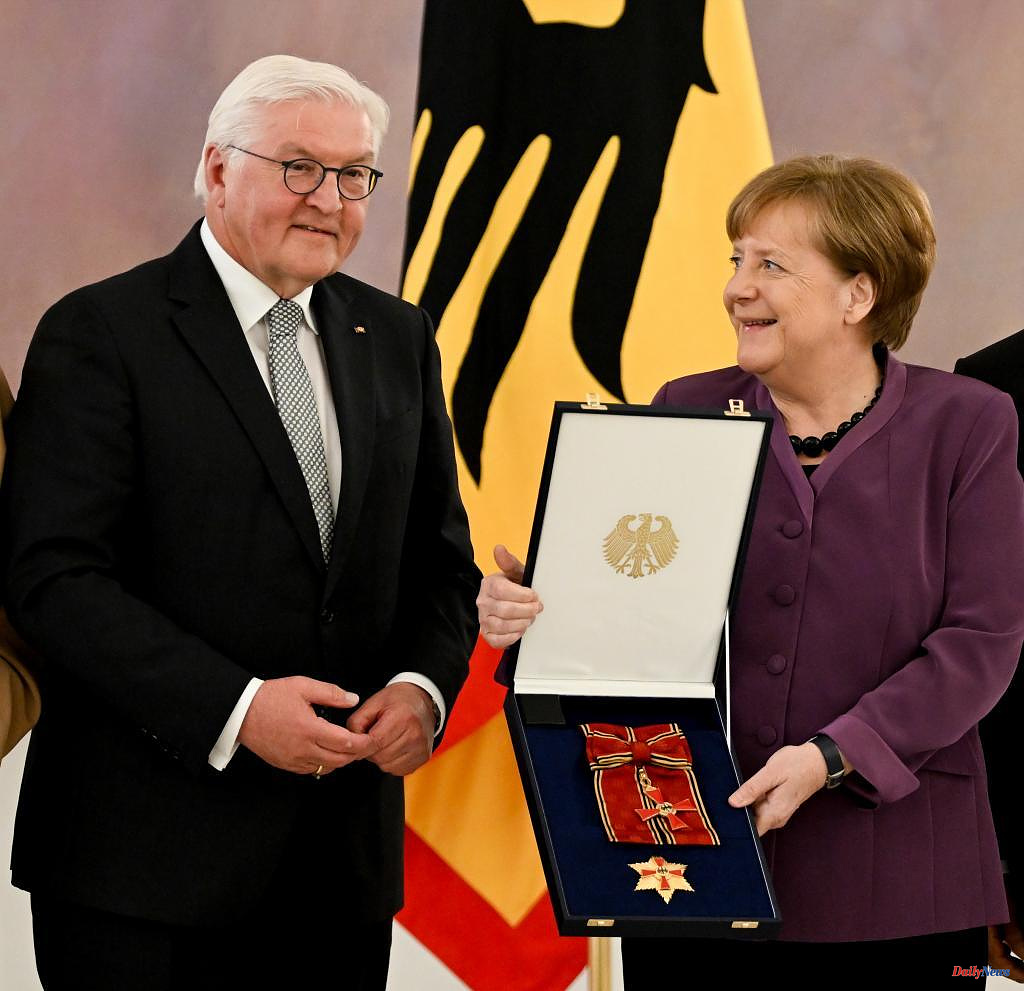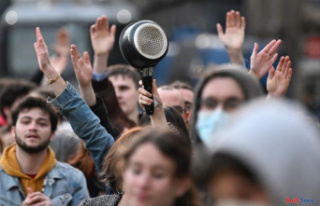Former German Chancellor Angela Merkel received this Monday the Grand Cross of the Order of Merit of the Federal Republic of Germany in recognition of 16 years of exceptional service to the country, an award that many consider premature and questionable given the implosion that has occurred produced in his political legacy.
Merkel is the third personality honored with the Grand Cross of the Order of Merit and, like her only two predecessors, Konrad Adenauer, in 1954, and Helmut Kohl, in 1998, coming from the conservative sphere. That is why Gregor Gysi, the best-known left-wing politician in political Berlin, is upset that former Social Democratic Chancellor Willy Brandt did not receive the order, since he, like Adenauer and Kohl, actually pursued political objectives in his day. All the other chancellors had essentially limited themselves to administering the Federal Republic.
Political scientist Thomas Jäger agrees with Gysi on this point. "When it comes to honoring merits, there is a great distance between Adenauer, Kohl and Merkel." Adenauer was the chancellor of West German integration; Kohl, the unit's chancellor. Jäger sees no comparable merit in Merkel. "The Order is excessive."
The awarding of this distinction to Merkel came from President Steinmeier, who in his laudatio not only praised Merkel's political achievements, but also her personal qualities. He said that she had never put herself as a person at the center. "Any vanity, any flattery, any fuss about herself was abhorrent to her," said the president during a ceremony that Merkel only wanted to share with about twenty people, those who had played an important role for her and showed her unwavering loyalty. Among them were the president of the European Commission, Ursula von der Leyen, the footballer Jürgen Klinsmanne, the actor Ulrich Matthes, the former minister and counselor Annette Schavan and her former chief of staff Beate Baumann. Merkel did not invite anyone from the current CDU leadership, including party leader Friedrich Merz.
Steinmeier stressed that Merkel had made "moderation in the personal sphere her own strength" and that as the first woman in the chancellorship she achieved that feminine power will also forever be something natural in our country.
The president reviewed Merkel's political achievements and what have now become her great failures. The former chancellor's legacy is imploding before the eyes of many Germans, be it energy policy, Russian policy or immigration policy. And the criticism comes from her own ranks.
The think tank R21, in which former Federal Family Minister Kristina Schröder participates, therefore describes the Grand Cross for Merkel as a "mistake with which the Federal Presidency damages democracy and its credibility".
"In retrospect, Merkel's reputation has suffered, not least because of her policy towards Russia. She has long clung to the Nord Stream, relied on cheap Russian gas instead of expanding renewables, and precipitated energy abandonment. nuclear power", criticizes Andreas Rödder, from the political family of the CDU.
"Merkel's policy towards Russia has rightly been described as the worst foreign policy mistake in the history of the Federal Republic of Germany. It was right to negotiate with Russian President Vladimir Putin even after the annexation of Crimea, for example, within the framework of the Minsk Agreement, but allowed Putin to take the initiative in the negotiations and continued to trust him when all the outward signs indicated that it should no longer be done," he maintains.
The criticisms go further. "The immigration policy, which is remembered for Merkel's phrase We can do it, led to the biggest chaos in the history of German politics," says integration expert Ahmad Mansour.
Armin Laschet, former president of the CDU, sees things differently. He believes that Merkel's award is well deserved: "It was a long chancellorship, 16 years, in different government constellations, but with great world crises," says Laschet. In his opinion, Merkel has kept the country and Europe together and her policies have always been principled: "I think that justifies such recognition."
After receiving the Grand Cross of the Order of Merit of the Federal Republic of Germany at Bellevue Palace, Merkel thanked her guests for taking the time and trouble to accompany her. She did not make political assessments or send messages because she already did it with the guest list. She just said thank you.
According to the criteria of The Trust Project












